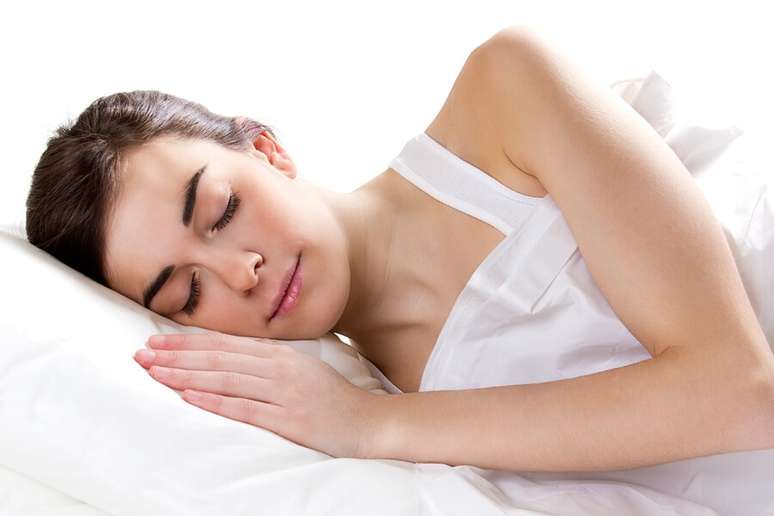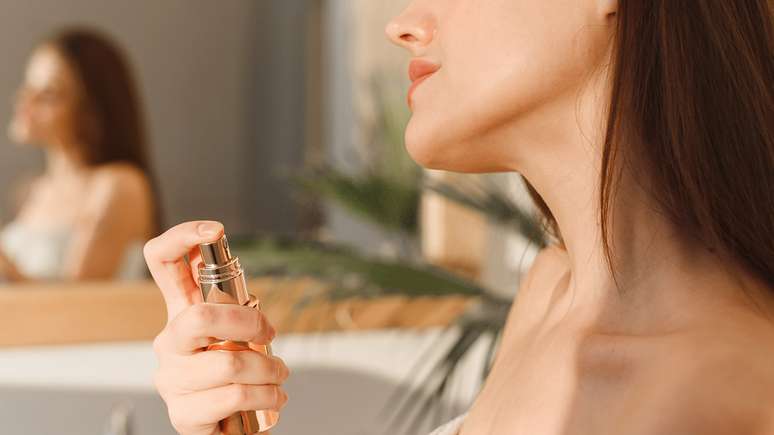Poor sleep, resulting in increased stress, can accelerate skin aging
Beauty sleep really exists! And sleeping badly on a recurring basis can have serious consequences for your skin, damaging its appearance and health.
“It is during sleep that muscle relaxation occurs, which prevents expression wrinkles due to facial expression during the day, and the release of substances such as growth hormone (GH), which is responsible for the development and renewal cellular, including collagen cells, which are fundamental for the firmness and vitality of the skin,” underlines dermatologist Paola Pomerantzeff, member of the Brazilian Society of Dermatology.
Additionally, poor sleep can increase the release of cortisol, known as the stress hormone.
“As a result, there is an increase in free radicals, oxidation of skin cells and an acceleration of the skin aging process. Cortisol also stimulates androgen hormones which promote the production of sebum, clogging pores and causing the appearance of blackheads and pimples. And stress is also associated with a decline in immune defenses and an excess of keratin, which contribute to the proliferation of acne-related bacteria,” adds the dermatologist.
Circadian cycle
All these processes are directly related to the so-called circadian cycle.
“This cycle is mediated by an area of the brain’s hypothalamus called the suprachiasmatic nucleus, which coordinates the release of hormones that, at night, reduce body temperature and blood pressure and make us feel drowsy; in the morning, cortisol and other hormones restore our state of alertness, warm us up and increase blood pressure,” underlines Deborah Beranger, endocrinologist, graduate in Endocrinology and Metabology from the Santa Casa de Misericórdia do Rio de Janeiro (SCMRJ).
But the circadian cycle cannot be reduced to sleep and wake times. “Most of our cells contain a group of genes that are like gears in a mechanical clock, keeping time everywhere internally. These biological clock genes cause the release of hormones in the brain, but also determine other processes in other parts of the body,” explains the endocrinologist.
Therefore, factors that compromise sleep quality and disrupt circadian rhythms can seriously harm skin health.
Observe your habits
It is therefore important to pay attention to habits that can interrupt the circadian cycle, such as the hours in which you expose yourself to light. “We know that the suprachiasmatic nucleus is directly connected to the retina and the brain clock can be calibrated by sunlight or artificial light, which signals when it is daytime,” explains the endocrinologist.
“Having consistent light when you wake up and waking up at the same time every day can help keep your clock on track so you fall asleep at the ideal time. Some studies show that, even while you sleep, weak light can penetrate through closed eyelids and confuse your internal clock,” adds the doctor.
Also daily stress levels, non-traditional work hours (nights, shifts), partying, excessive use of smartphones before bed, sedentary lifestyle and many other behavioral and mental problems, such as increased cases of anxiety and depression, can compromise with the internal hourglass. Therefore, it is important to take some precautions, mainly focused on stress control.
“Do pleasant physical activity, because by expending energy it becomes easier to regulate sleep and reduce stress. Also, adopt a healthier diet, avoiding excess fat, especially at night. As for work stress, try relaxing when you get home, with a book or meditation, for example. Weekends with fun activities are also welcome. And also try to disconnect from the online world. These habits will help you synchronize your internal clocks better,” says the endocrinologist.
How to get quality sleep
To ensure quality sleep, it is also worth taking some precautions right before going to bed, which are part of sleep hygiene.
“Sleep hygiene is basically about adopting a routine that tells your brain it’s time to sleep. So take a shower, put on your pajamas, take care of your skin, brush your teeth, turn off the light and lie down in bed. Meanwhile, the brain will generate signals for the body to start producing sleep-regulating hormones, such as melatonin and serotonin, and stop producing alert hormones, such as cortisol. However, avoid using any type of electronic equipment an hour before going to bed, be it a mobile phone, a tablet or a television, as the blue light emitted by the devices can destabilize the production of melatonin, thus interfering with the quality of sleep. ”, recommends the plastic surgeon. Beatriz Lassance, member of the Brazilian Society of Plastic Surgery.
Thinking specifically about your skin, when you sleep, avoid lying on a specific side or stomach, always choosing to lie on your back. “Sleeping with your face turned 100% towards the pillow or always on the same side can form static wrinkles due to the pressure and friction caused by the contact of the face with the pillow. This way we end up aging more asymmetrically, with deeper demarcations of furrows, lines and wrinkles,” says Beatriz Lassance.
If you have difficulty lying on your back while sleeping, it’s a good idea to, for example, replace cotton pillowcases with satin or silk pillowcases, which don’t pull on your skin. “There are also pillows, such as neck pillows, designed to reduce contact of the face with the pillow,” adds the doctor.
Furthermore, during your skin care routine, you should also consider the differences between wakefulness and sleep, according to pharmacist Maria Eugênia Ayres, scientific director of Biotec Dermocosméticos.
«Day cosmetics must contain active ingredients capable of fighting free radicals generated by solar radiation (such as Vitamin C, Ascorbosilane C and Alistin), visible light (Pro Shield MDC) and pollution (Exo-P) , for example. They also need to provide energy to the cells (such as Arct-Alg, which triples energy production) so that they can withstand the stress generated by the excess toxins produced daily”, explains the pharmacist.
The night cream must be formulated with active ingredients that promote cell renewal, since it is during the night that cells are best able to renew themselves and absorb nutrients, reconstituting defenses and immunity for the following day.
“An example of a nocturnal active ingredient that works in an exemplary way is Overnight Repair, which resynchronizes the genes of the circadian cycle, fights oxidative stress and cellular damage, intensifies the nocturnal cellular repair cycle and promotes intense and long-lasting hydration,” says Maria Eugênia. .
For those who want to go further, it is possible to opt for aesthetic procedures that take care of the health of the skin while offering a unique relaxation experience, thus helping to reduce stress that interferes with sleep. This is the case of HydraFacial which, if performed regularly, is still a great ally in counteracting the signs of aging.
“The procedure is able to clean, exfoliate and extract dirt in a pleasant way, while promoting powerful hydration of the skin. It thus instantly improves the quality of the skin tissue, uniforming the texture and increasing the firmness, freshness, softness, hydration and shine of the skin”, explains dermatologist Renato Soriani, member of the Brazilian Society of Dermatology (SBD), expert in dermatological technologies and former coordinator of the Laser and Technologies Department at SBD (2017-2021).
“Fully customizable, HydraFacial also features a series of boosters personally selected by the dermatologist based on the characteristics of the patient’s skin. To reduce, for example, fine wrinkles we can use the Dermabuilder booster, which is rich in peptides”, concludes the doctor.
inspires transformation in the world of work, in business, in society. Compasso, a content and connection agency, is born.
Source: Terra
Ben Stock is a lifestyle journalist and author at Gossipify. He writes about topics such as health, wellness, travel, food and home decor. He provides practical advice and inspiration to improve well-being, keeps readers up to date with latest lifestyle news and trends, known for his engaging writing style, in-depth analysis and unique perspectives.







